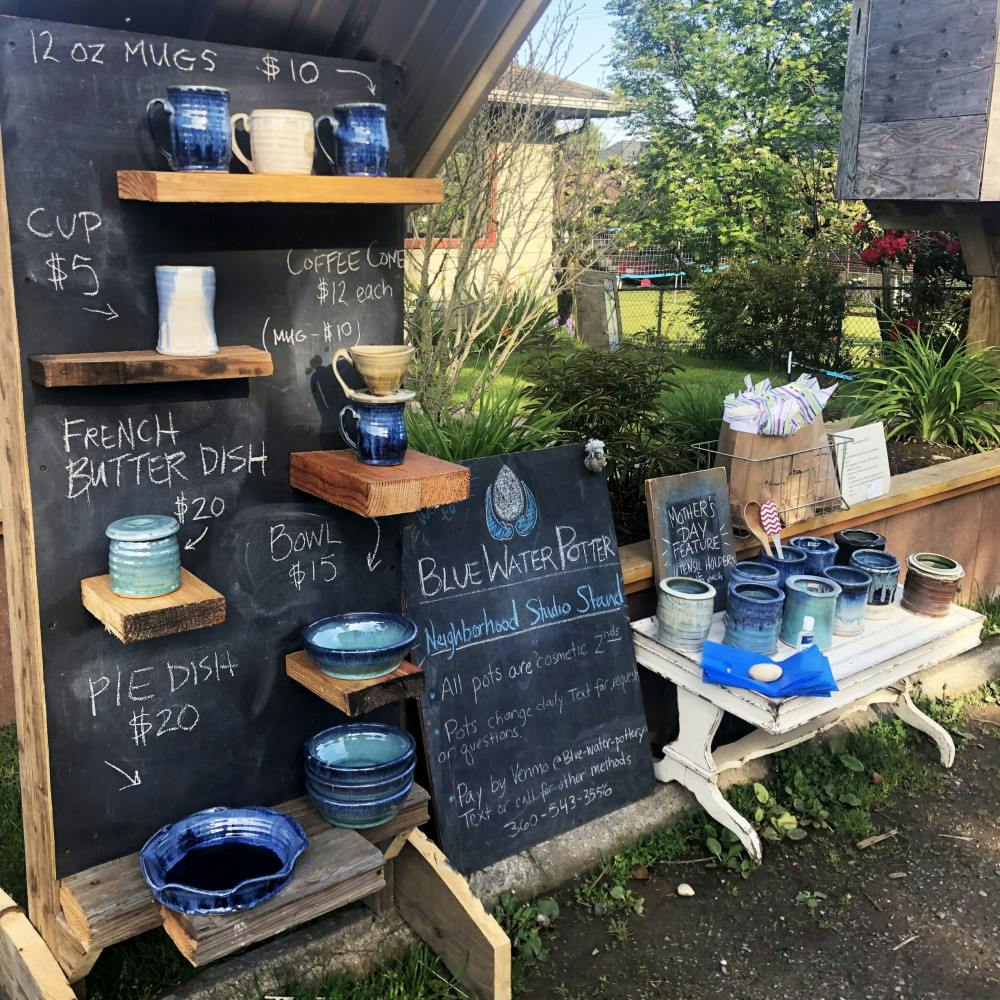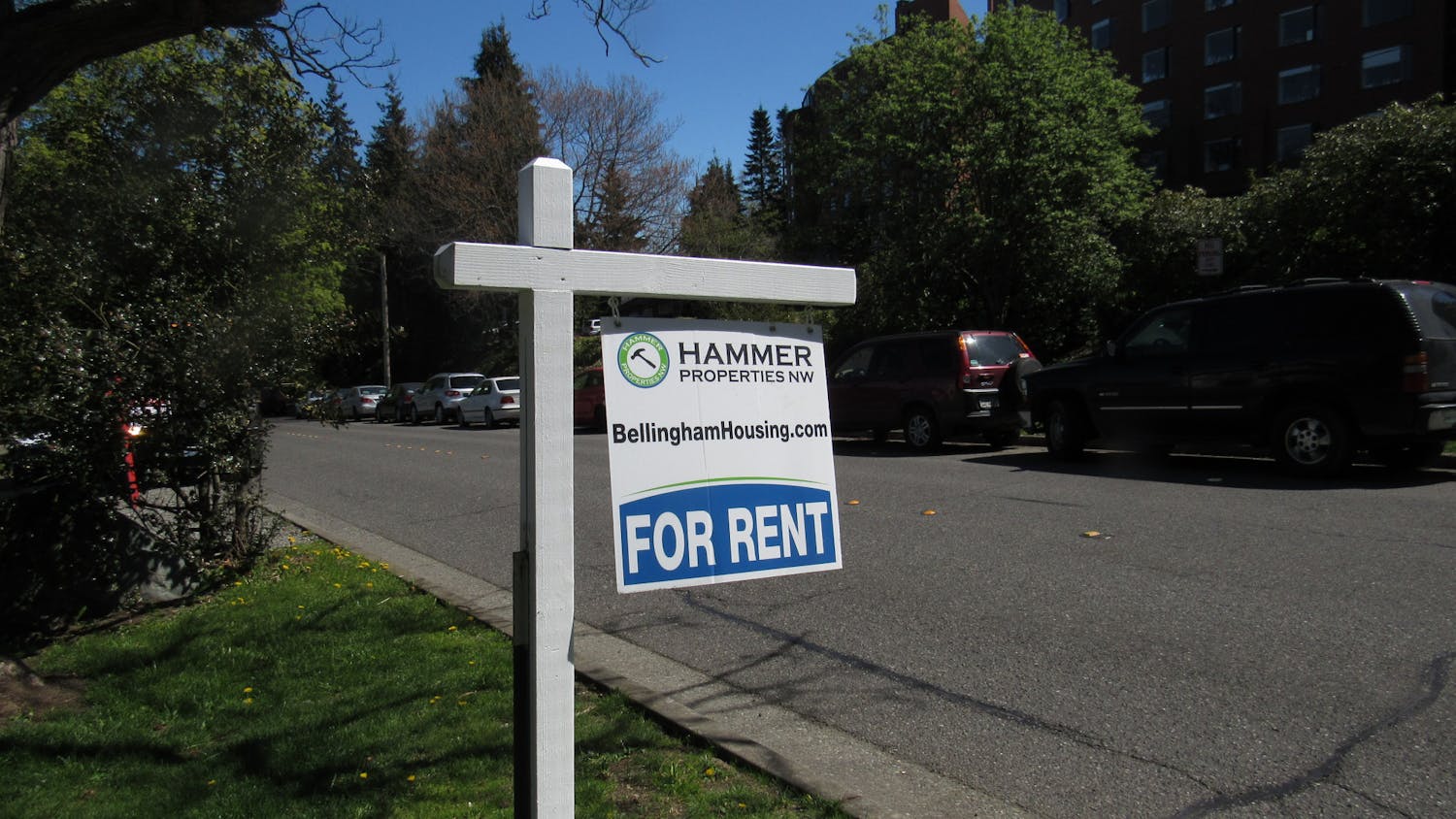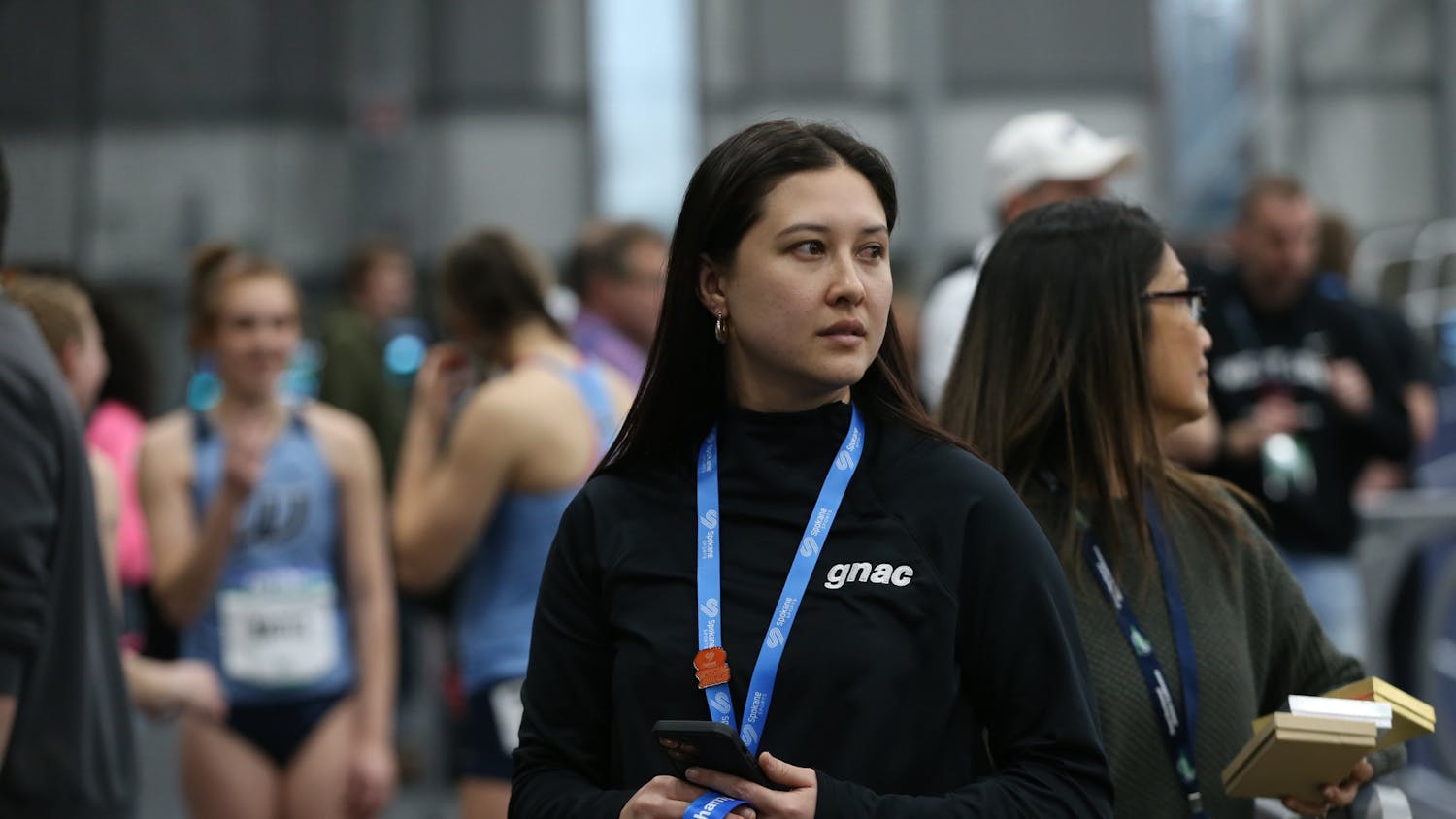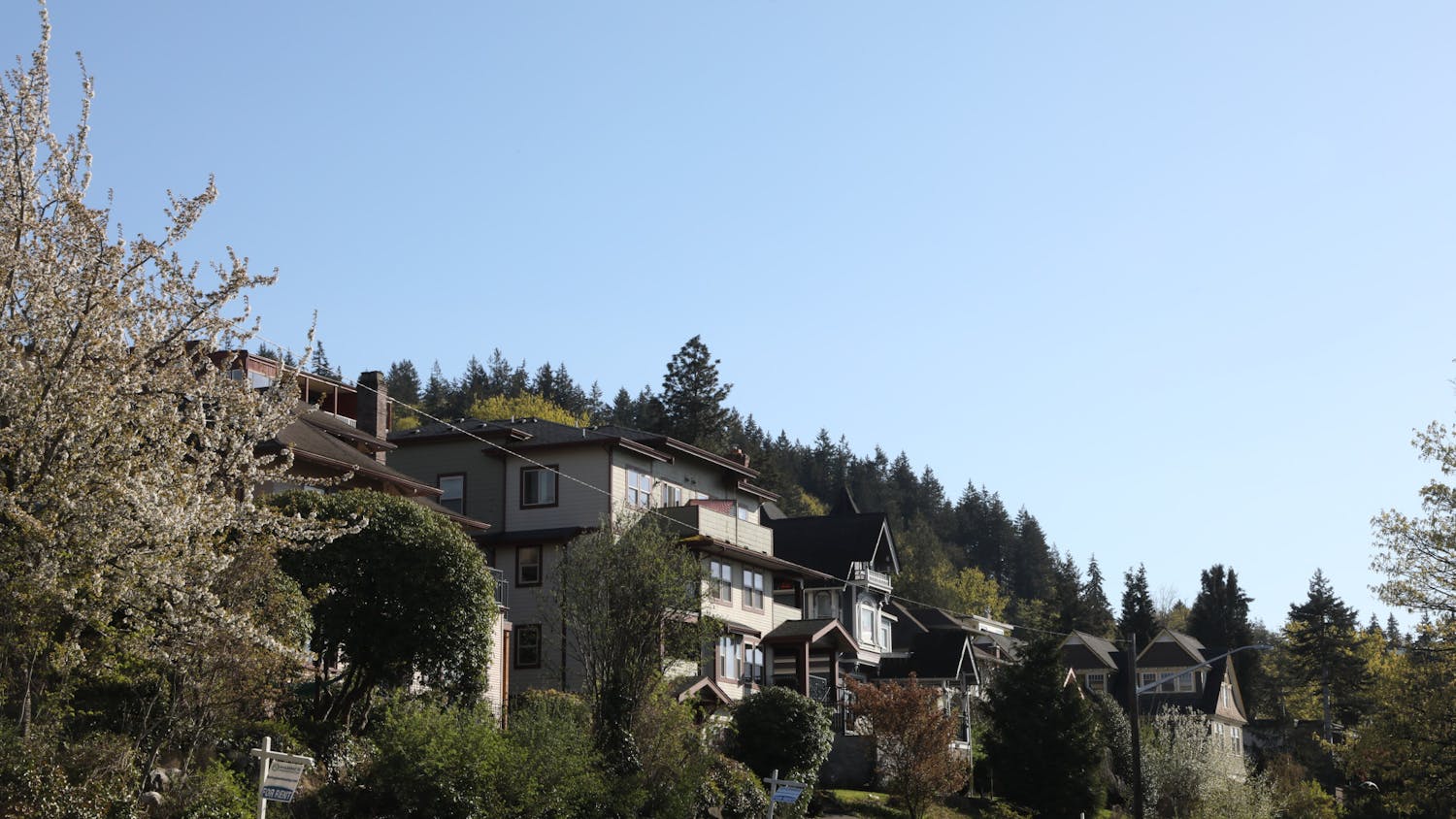
By Mazey Servin
Blue Water Pottery and Reimagined, local Bellingham businesses, are creating and adopting new ways to sell their art during the “Stay Home, Stay Healthy” order.
The COVID-19 outbreak has caused businesses to close due to the order put in place by Gov. Jay Inslee and now will be extending till the end of May for Washington state.
Jeremy Noet, Blue Water Pottery owner, has created a new way to sell his pottery while still maintaining social distancing. Noet has created a neighborhood studio stand that displays 10 to 12 pieces of pottery he has made, as well as little clay kits for free.
“Our booth is tiny! And we made it especially tiny to hold only 10-12 pots at a time, we figure we can always put more out later, and we drew pictures of what we wanted for display and then used our skills to make this funky little stand,” Noet said in an email. “It took a few days, and I had almost everything to build it sitting around.”
To purchase a piece of pottery, customers can simply pay through the Venmo app or text or call the Noet’s number for another method of payment.
“This actually has really helped us,” Noet said. “At first we just thought it would be kinda nice, but since we are selling slight ‘seconds’ and the price is really very affordable, people are purchasing our work! This means we get to make some money and I get to make more pots.”
Noet’s neighborhood studio stand helps connect with customers.
“We have always wanted to have a more intimate way to connect with our customers and neighbors, and since we weren’t doing much else we just went for it,” Noet said.
The stay at home order doesn’t make it easy for people to interact a lot, however, Noet’s neighborhood studio found ways to create interaction from afar.
Noet thinks that they will continue their neighborhood studio stand for a while because he enjoys the interaction with people coming to browse his stand whether it’s neighbors or just people out for a stroll.
“. . . I like talking to people, so I will poke my head out the door and say hi, but I don’t want [to] bug people,” Noet said, “And our kitchen table looks out over our yard, so sometimes I wave! And we have to keep our yard tidier.”
While the neighborhood studio is small, people are respecting social distancing while browsing the stand, Noet said.
“. . . people walk by and because the stand is so small, if someone is already standing there looking, and most people don’t touch the work unless they are sure they want it, most people will keep walking and come next time they walk by,” Noet said. “Maybe just to look, maybe they saw the perfect bowl?”
Many people have been coming up with ways to connect with their customers in a safe way, Noet said.
“We have friends who are farmers who are figuring out safer ways to connect with their customers. Roslyn, from Rabbit Fields, set up a produce stand on Kulshan street, and there’s other crafters who are trying anything and everything,” Noet said. “As far as a regular little stand, I’ve seen flower stands and the like for years.”
Noet said that the pottery business is their main source of income.
“I sell through five galleries and I wholesale to like another five and I do the farmer's market and the farmer's market is a big part of my income,” Noet said. “. . . we're not going to do the farmer's market this year. And so when all the galleries closed, basically my income went to zero.”
Noet said being a business owner is very difficult right now. “From supply issues like getting clay and materials, to getting work to customers without risking anyone’s health.”
Noet is also having difficulty because his pottery is something that will play an active part in his customers' lives.
“Basically I make work that invades your home, you grab your mug and raise it to your lips, you bring a bowl of salad to a friends house, share your favorite pie on pi day,” Noet said. “I make stuff that celebrates life and sharing, it just seems to be on hold a little right now.”
Noet said he would like to see more curbside arts.
Kari Frazier, who bought a piece from Blue Water Pottery’s work is from Michigan and said in a Facebook message, “I think having a community stand is a great idea! It offers everyone a bit of happy during such a stressful & sad time. I hope their community stand is successful.”
Jennifer Parker is the owner ofReimagined , a business that sells art made out of recycled items. Parker has been more reliant on Facebook and Instagram as means to sell her art. Parker did a pop-up shop on Mother’s day.
“I have a much higher following on Facebook I am selling to new people. However, I am not getting new clients in person, and my art is REALLY good in person, you can see all the texture,” Parker said in an email.
Parker’s business has been affected by no shows, loss of revenue and loss of visibility.
“I am selling through Facebook as all other venues are canceled. I recently posted all of my available inventory on Facebook which made it much easier,” Parker said.
She said she misses selling her art through other venues, “ I love seeing where people place their pieces and how much they're enjoyed.”
Keely Clevenger, a customer of Reimagined, said when Parker started her business she supported her.“Anybody with a business knows that their algorithms, you have a thousand followers, but five people see things and it seems like with her, you share it and people just continue to share it. They love the ideas, they love what she's creating.”
Local businesses like Noet’s and Parker’s have had to close, leaving many people without work for about two months.
Don Goldberg, director of economic development for the Port of Bellingham, said “We're looking at very similar numbers to the rest of the nation. Our unemployment numbers are very high now. We had very, very low ones and part of the pain of this whole thing is that we went from one of the best economies we've had in many, many years with a very, very low vacancy and housing and a very, very low unemployment number.”
Goldberg said there were three waves of how things got shut down and the first wave was with restaurants and small businesses.
“I would say the first wave was the restaurants and tourism and small shops that all had to close based upon the order, so that was the first real gut punch,” Goldberg said. “And also many of these businesses are the ones that have the least, if any savings, and employ a lot of people.”
Goldberg said people are expecting for things to just go back to normal and they won’t.
“Most economists thought we were going to have what's called, a V-shape return where we dropped off dramatically. And once the situation is over, we would come back dramatically. A world economy or U.S. economy or a regional economy does not just turn back on,” Goldberg said. “That demand curve will not go straight back up, it's way too complex to do that. People will be in debt. Many businesses will not open again. Some will have a different model where they don't have as many employees or as much space.”
Clevenger said it's important to support small business because they are the people that are part of the community.
“I think it's very important to start supporting people that do things in the community because more small businesses are disappearing,” Clevenger said. “They're having a hard time, especially with this. When things finally return to normal, I really hope people continue to support local businesses.”
CJ Seitz, executive director of Small Business Development Center, said in an email they didn’t have the bandwidth for an interview at this time.





